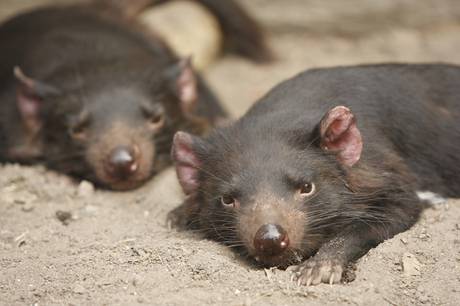Trialled in the wild — the Tasmanian devil vaccine

Nineteen Tasmanian devils, who were recently immunised against the deadly devil facial tumour disease (DFTD), have been released into Narawntapu National Park as part of a program to test the vaccine in the wild for the very first time.
Previous trials of the vaccine have taken place in the laboratory at the Menzies Institute for Medical Research at the University of Tasmania, where it was developed in collaboration with CSL. Associate Professor Lynn Corcoran and Dr James Murphy, both from the Walter and Eliza Hall Institute of Medical Research, assisted in the project.
“The tumours are able to effectively ‘fly under the radar’ and evade immune detection,” Associate Professor Corcoran said. “We developed tools to measure antibody responses and produced natural devil proteins that stimulate tumour cells to ‘reveal’ themselves to the immune system.”
According to Menzies immunologist Professor Greg Woods, the devil research team was able to activate an immune response against cancer cells in 18 of the 19 vaccinated devils. “This is an excellent outcome,” he said, “but the real test will be determining whether the vaccine is effective in protecting devils in the wild — hence the release at Narawntapu.”
Professor Woods said the 19 devils will be monitored after their release and regular blood samples will be collected to confirm that the immune response is still active — if not, the devils may require a booster. The monitoring process will additionally be used to assess the impact of the immunised animals on the local devil population.
Menzies is working in partnership with the Save the Tasmanian Devil Program (STDP), as well as national and international scientific collaborators, to help achieve the Tasmanian devil’s long-term survival in the wild. The role of the STDP is to assess the condition of the wild devil population in the state’s north-east, explore ways to rebuild disease-affected populations and coordinate management of wild devils. The release of the immunised devils thus marks an exciting new step for the program.
What journalists expect from the scientists they speak to
Peer review is often treated as the end of the story, but for journalists it is usually the point...
European Space Agency inaugurates deep space antenna in WA
The ESA has expanded its capability to communicate with scientific, exploration and space safety...
Black hole collision supports Hawking's landmark theory
Astrophysicists have witnessed a collision between two black holes that was so loud, they were...



